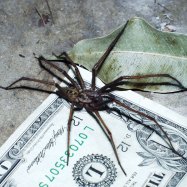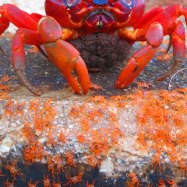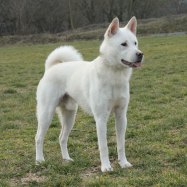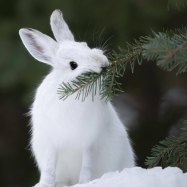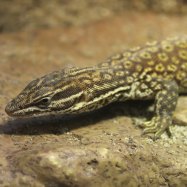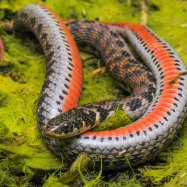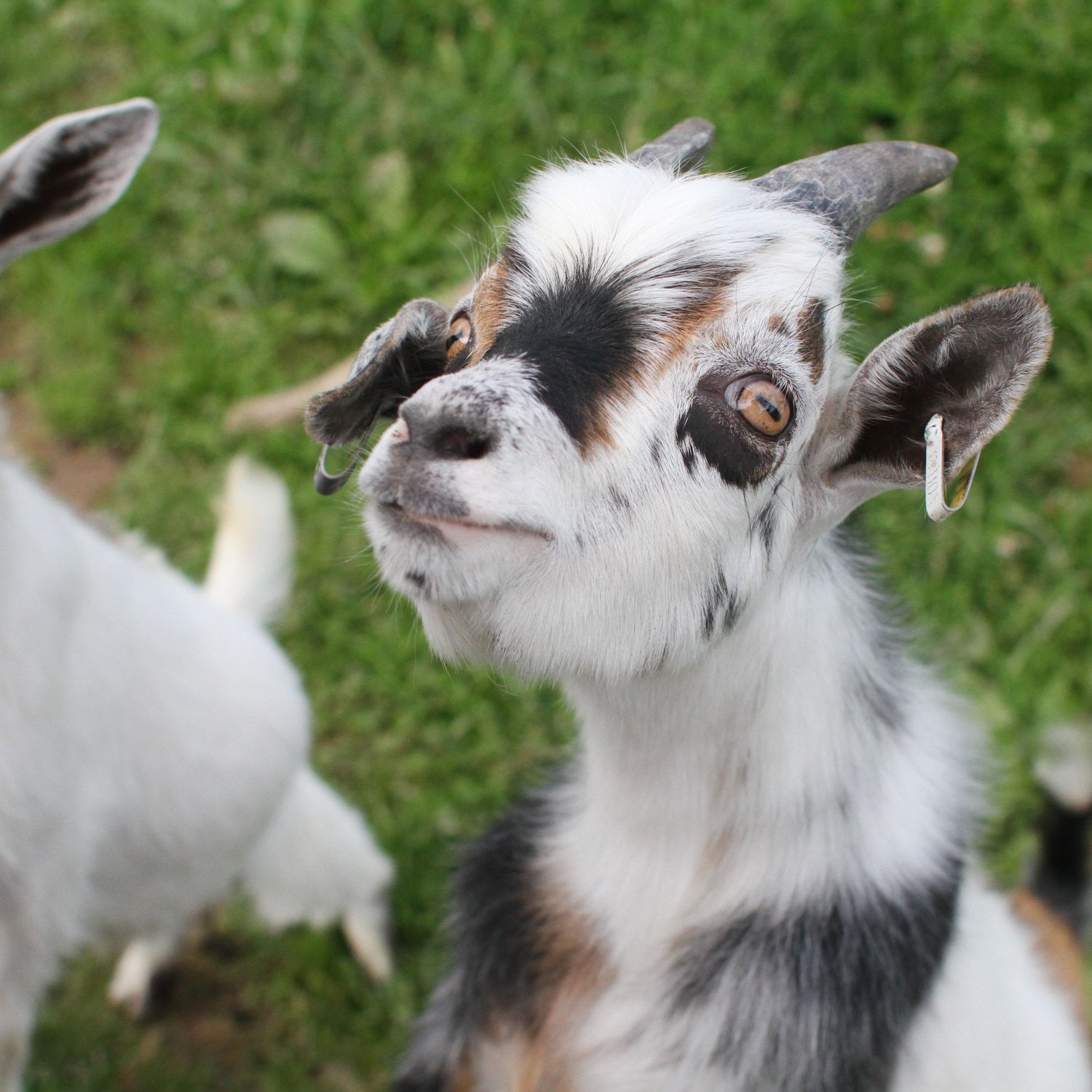
American Pygmy Goat
60 - 85 cm
The American Pygmy Goat, also known as the Pocket Goat, is a popular choice for small farms and homesteads. They are known for their friendly demeanor and compact size, standing between 60-85 cm tall. Native to the southern, southwestern, and western parts of the country, these adorable goats are a great addition to any family. With their small body shape and belonging to the Bovidae family, they are perfect for those with limited space.
Animal Details Summary:
Common Name: American Pygmy Goat
Kingdom: Animalia
Habitat: Grassy fields, scrubby areas
The Unforgettable Charm of the American Pygmy Goat: A Guide to the Adorable Creatures of the United States
The United States is a vast and diverse country, home to a variety of flora and fauna. From the lush forests of the Pacific Northwest to the arid deserts of the Southwest, there is no shortage of fascinating creatures to discover. One such animal that has captured the hearts of many is the American Pygmy Goat.With its compact size, playful nature, and charming personality, the American Pygmy Goat is a beloved breed of goat that has been domesticated for centuries American Pygmy Goat. In this article, we will delve into the world of these adorable creatures and learn all about their habitat, behavior, and unique characteristics.
Meet the American Pygmy Goat
Scientifically known as Capra aegagrus, the American Pygmy Goat is also commonly referred to as the African Pygmy Goat or simply Pygmy Goat. This breed is a descendant of the West African Dwarf goat and was brought to the United States in the early 20th century. It was originally imported as an exotic pet but has since become a popular domesticated breed.Belonging to the Animalia kingdom and Chordata phylum, the American Pygmy Goat is classified under the Mammalia class and Artiodactyla order. It is a member of the Bovidae family, which includes other goats, sheep, and cattle. These goats have a compact and sturdy body shape, with males weighing between 27-35 kg and females slightly lighter at 23-30 kg.
With a length of 60-85 cm and a height of 40-58 cm, the American Pygmy Goat is one of the smallest breeds of goats in the world. Despite their size, they are known for their high energy levels and playful nature, making them popular as pets and for production purposes American Foxhound.
A Habitat Perfect for Play
As their name suggests, American Pygmy Goats originate from the United States. They can be found in the southern, southwestern, and western parts of the country, where the climate is more suitable for them. In the wild, they can be found in grassy fields and scrubby areas, where they have access to vegetation to graze on and areas to frolic and play.However, these goats are equally comfortable in domestic environments, and their size makes them ideal for backyard or small-scale farming. They do well in fenced areas that provide shade, shelter, and ample space for them to roam and play. Due to their playful nature, they need to be kept entertained and given plenty of things to climb on, such as rocks or platforms. A bored Pygmy goat can become destructive and may try to escape, so keeping them well-stimulated is essential.
A Herbivorous Diet
American Pygmy Goats are herbivores, which means that their diet consists primarily of plant-based foods. In the wild, they mainly feed on bushes, weeds, grass, and other vegetation found in their habitat. In domestic settings, they can be fed commercial goat feed, hay, and various types of greens, fruits, and vegetables. They also require access to clean water at all times.As with any animal, it is essential to monitor and control their diet to ensure they are getting the nutrition they need. Overfeeding can lead to obesity, which can be harmful to their health. Consult with a veterinarian or a goat expert for specific dietary recommendations based on your Pygmy goat's age and size.
The Colorful Coats of American Pygmy Goats
One of the most endearing features of American Pygmy Goats is their colorful coats. These goats come in a variety of colors and patterns, making each one unique in appearance. Some of the most common colors include black, brown, white, and caramel.They can have solid-colored coats or be a mix of colors, sporting distinctive patterns such as spots or stripes. In addition to their beautiful coats, Pygmy goats also have small horns and expressive eyes, adding to their charm and playful demeanor.
A Charming Companion
Aside from their small size, American Pygmy Goats are known for their cheerful and friendly personalities. They are naturally curious and love to explore their surroundings, making them entertaining companions. These goats are also highly sociable animals, so they thrive in environments where they have a herd or interact with humans regularly.Their playful nature and high energy levels make American Pygmy Goats popular as pets, especially for families with children. They are relatively easy to care for, and their compact size makes them suitable for urban or suburban living as well.
A Growing Interest in Pygmy Goat Farming
While American Pygmy Goats are beloved pets, they are also gaining popularity for their commercial use. Due to their small size and easy maintenance, they make excellent options for small-scale goat farming. They can be used for milk, meat, and fiber production, providing a source of income for farmers.Their meat is lean and flavorful, and their milk is high in protein and calcium, making it ideal for making cheese and soap. Additionally, their soft undercoat can be harvested for fiber, which can be spun into yarn for knitting or crocheting projects.
Sustainability and Conservation Efforts
With the rise in popularity of American Pygmy Goats, there has also been an increase in efforts to conserve and promote sustainable breeding practices. Many organizations and breeders work to ensure the genetic diversity and overall health of the breed, as well as educate people about responsible ownership and farming practices.In recent years, there has also been a push for sustainable farming methods to reduce the environmental impact of goat farming. These efforts include pasture rotation, grass-fed diets, and the use of natural pest control methods to maintain herd health and minimize the use of antibiotics.
Ensuring the Well-Being of American Pygmy Goats
As with any animal, it is crucial to prioritize the well-being of American Pygmy Goats. Responsible ownership and farming practices play a significant role in ensuring the health and happiness of these creatures. Here are some essential things to keep in mind when caring for Pygmy goats:- Nutrition: As mentioned earlier, it is important to monitor and control their diet to avoid overfeeding and nutrition deficiencies.
- Shelter and Space: These goats need access to a suitable living environment, whether indoors or outdoors. They also require adequate space for exercise and play.
- Veterinary Care: Just like any other domestic animal, Pygmy goats need regular veterinary care, including vaccinations and parasite control.
- Socialization: As highly sociable animals, Pygmy goats need regular interaction with other goats or humans to thrive.
- Exercise: Their playful nature means that these goats need plenty of opportunities for physical activity, such as climbing and running.
In Conclusion
The American Pygmy Goat may be small in size, but it is big in personality. Its cheerful demeanor, colorful coat, and high intelligence make it a beloved pet and popular for small-scale farming. As their popularity grows, initiatives for sustainable breeding and farming are also on the rise, ensuring the well-being of these adorable creatures for years to come.So the next time you come across these little goats in a grassy field or on a farm, take a moment to appreciate their unique charm and playful nature. After all, they are the unforgettable American Pygmy Goats, a true gem of the United States.

American Pygmy Goat
Animal Details American Pygmy Goat - Scientific Name: Capra aegagrus
- Category: Animals A
- Scientific Name: Capra aegagrus
- Common Name: American Pygmy Goat
- Kingdom: Animalia
- Phylum: Chordata
- Class: Mammalia
- Order: Artiodactyla
- Family: Bovidae
- Habitat: Grassy fields, scrubby areas
- Feeding Method: Herbivorous
- Geographical Distribution: United States
- Country of Origin: United States
- Location: Southern, Southwestern, and Western parts of the country
- Animal Coloration: Various colors and patterns including black, brown, white, and caramel
- Body Shape: Small, compact
- Length: 60 - 85 cm
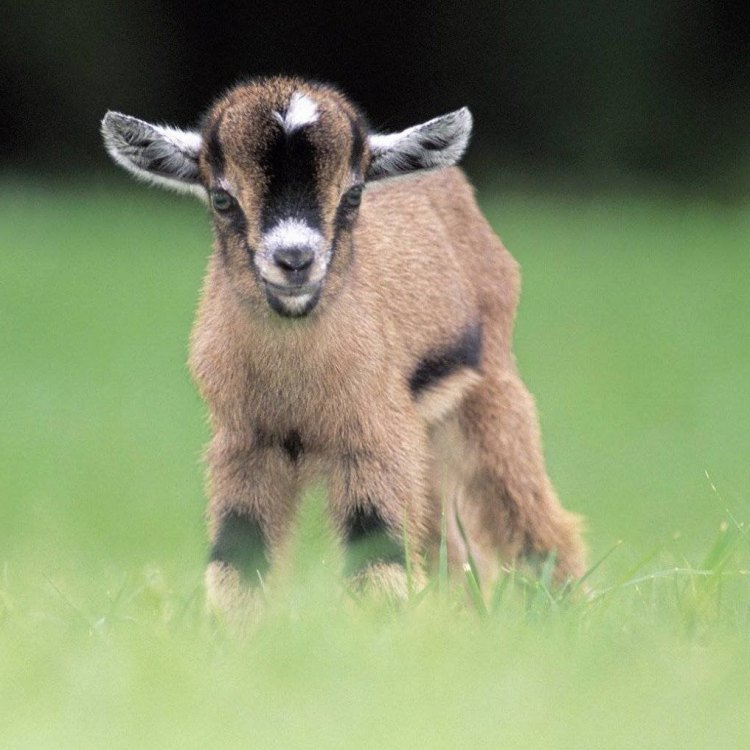
American Pygmy Goat
- Adult Size: 30 - 61 cm at the shoulder
- Average Lifespan: 10 - 15 years
- Reproduction: Sexual
- Reproductive Behavior: Polygynous (males mate with multiple females)
- Sound or Call: Varies, including bleating, chattering, and screaming
- Migration Pattern: Non-migratory
- Social Groups: Herd
- Behavior: Curious, playful, agile
- Threats: Predation, habitat loss
- Conservation Status: Not listed
- Impact on Ecosystem: Controlled grazing, potential for overgrazing
- Human Use: Companionship, milk production
- Distinctive Features: Small size, prominent beard, short legs
- Interesting Facts: American Pygmy Goats are often kept as pets due to their small size and friendly nature
- Predator: Coyotes, domestic dogs, mountain lions
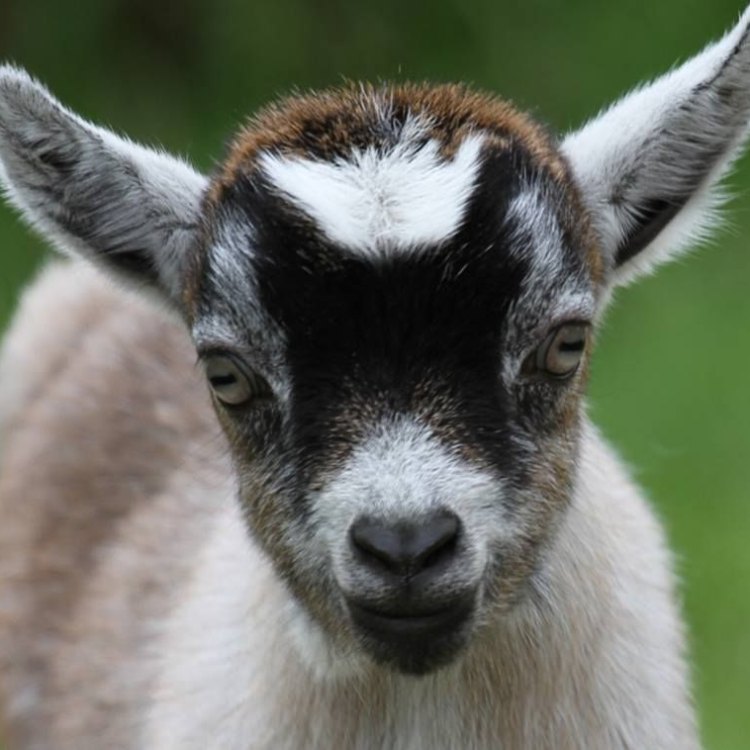
Capra aegagrus
The Charming American Pygmy Goat: A Compact Wonder
In the vast kingdom of animal species, there is a unique creature that stands out for its charm and playful nature - the American Pygmy Goat. These adorable goats may be small in size, but they are big on personality and have captured the hearts of many people around the world.With an adult size ranging from just 30 to 61 cm at the shoulder, the American Pygmy Goat is considered one of the smallest goat breeds in the world. But what they lack in size, they make up for in curiosity, agility, and an endearing personality PeaceOfAnimals.Com. In this article, we will delve deeper into the world of these delightful creatures and discover what makes them so special.
Origins and Physical Characteristics
The American Pygmy Goat originated from the Cameroon Valley in West Africa and were brought to the United States in the 1950s. They were initially used for research purposes and were later crossed with other breeds to produce a hardy and adaptable goat that could thrive in various climates and conditions.
These goats have a short coat that can come in a variety of colors such as white, black, brown, and gray. They also have a distinct beard that gives them a distinguished and adorable appearance. One of the most distinctive features of the American Pygmy Goat is their short legs, which only add to their cuteness factor.
Life Cycle and Reproduction
The average lifespan of an American Pygmy Goat is 10 to 15 years, but some have been known to live up to 20 years when well taken care of. These goats reach sexual maturity at around 4 to 5 months of age and have a polygynous reproductive behavior, meaning that males mate with multiple females.
During breeding season, which usually occurs in the fall, the male goats will vie for the attention of the females by showcasing their agility and strength Ashy Mining Bee. Once a male is chosen, the mating process can last for a few seconds to a few minutes. Gestation lasts for about 150 days, and female goats can give birth to one or two kids at a time.
Social Behavior and Communication
American Pygmy Goats are highly sociable animals and live in herds, where they form strong bonds with each other. They are also known to be very curious and playful, often jumping around and climbing on objects in their environment.
These goats communicate with each other through various vocalizations, including bleating, chattering, and screaming. Each sound has a specific meaning, such as calling out to alert others of danger or signaling their readiness to mate. This form of communication is crucial in keeping the herd together and maintaining their social structure.
Habitat and Behavior in the Wild
The American Pygmy Goat is a non-migratory species and can thrive in a variety of habitats, including forests, grasslands, and even rocky areas. However, they do require a sufficient supply of food and water to survive. These goats are browsers, meaning that they primarily feed on leaves, shrubs, and woody plants. They also have a controlled grazing behavior, which means they tend to eat smaller portions of a variety of plants, preventing overgrazing.
Threats and Conservation
In the wild, American Pygmy Goats face various threats, including predation and habitat loss. Their small size makes them an easy target for predators such as coyotes, domestic dogs, and mountain lions. The loss of their natural habitat due to human encroachment is also a significant threat to their survival.
Despite these challenges, the American Pygmy Goat is not currently listed as an endangered species. Their ability to adapt to different environments and their popularity as pets and farm animals have contributed to their relatively stable population.
Human Use and Interesting Facts
In addition to being kept as pets, American Pygmy Goats also serve various purposes for humans. They are known for their high-quality milk production, which is often used to make cheese and other dairy products. Their small size also makes them suitable for urban settings, and they can be trained as pack animals or to participate in small-scale farming tasks.
One interesting fact about American Pygmy Goats is that they have a natural resistance to most common illnesses and parasites, making them a hardy and low-maintenance addition to any farm or backyard.
In terms of their impact on the ecosystem, American Pygmy Goats play a role in controlling vegetation, which can be beneficial in preventing wildfires in some areas. However, their potential for overgrazing and impacting the growth of vegetation must also be monitored.
In Conclusion
In conclusion, the American Pygmy Goat is a compact wonder that has captured the hearts of many with its playful and friendly nature. Despite their small size, these goats have proven to be hardy and adaptable, making them a beloved addition to many farms and homes.
While they may face some threats in the wild, their population remains stable. As responsible caretakers of the environment, we must continue to monitor and protect these charming creatures to ensure their long-term survival. And whether it's for companionship, milk production, or just the joy of watching them frolic around, the American Pygmy Goat will always hold a special place in our hearts.
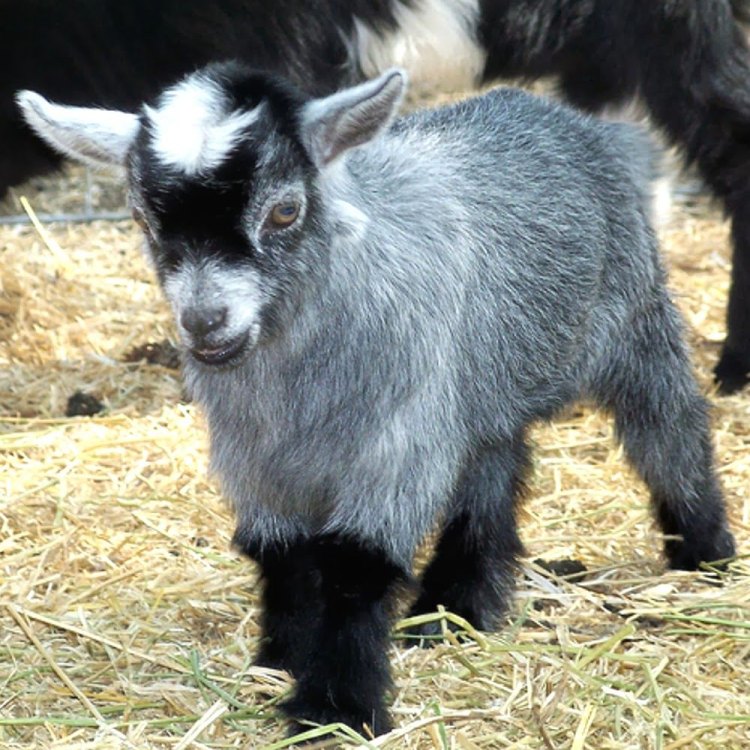
The Unforgettable Charm of the American Pygmy Goat: A Guide to the Adorable Creatures of the United States
Disclaimer: The content provided is for informational purposes only. We cannot guarantee the accuracy of the information on this page 100%. All information provided here may change without prior notice.


